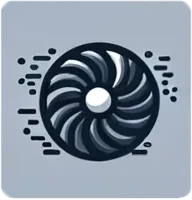
Fan is a dynamically-typed programming language based on Wren. The project was my first forray into writing a serious C/C++ application, and I’ve learned a lot about how programming languages work from this project.
Inspiration
Fan would not have been possible without the incredible work of Bob Nystrom. He is a legendary figure in the programming langauge meta scene. That is, the community of people who care about writing, developing, and studying programming languages. He wrote Crafting Interpreters and is known for his work on Dart.
Using Fan
Fan works a treat, with a small but powerful standard library, I used it to solve 2023 Advent of Code. Below is that complete program, untouched.
import "std/fs" for Fs
import "std/fmt" for Fmt
// import "std/os" for Runtime
var textNum = Fn.new { | input, reverse |
if (!(input is String)) {
Fiber.abort("Paramater must be of type String")
}
// This is where I'd make the input all lowercase if Fan had that in its standard library 😂
if (reverse) {
input = Fmt.reverse(input)
}
// System.print("Input: %(input)")
var index = [
"zero",
"one",
"two",
"three",
"four",
"five",
"six",
"seven",
"eight",
"nine"
]
var keys = {
"zero": 0,
"one": 1,
"two": 2,
"three": 3,
"four": 4,
"five": 5,
"six": 6,
"seven": 7,
"eight": 8,
"nine": 9
}
for (i in index) {
if (input.contains(i)) {
return keys[i]
}
}
return null
}
var input = Fs.read("./1/input.txt")
var output = []
for (line in input.split("\n")) {
var fromStart = Fiber.new {
var buffer = ""
for (i in line) {
if (buffer.count >= 3) {
var strKeys = textNum.call(buffer, false)
if (strKeys is Num) {
// System.print("Found \e[0;32m%(strKeys)\e[0m")
Fiber.yield(strKeys)
}
}
var diget = Num.fromString(i)
if (diget != null) {
Fiber.yield(diget)
}
buffer = buffer + i
}
}
var fromEnd = Fiber.new {
var buffer = ""
var size = line.count
while (size != 0) {
if (buffer.count >= 3) {
var strKeys = textNum.call(buffer, true)
if (strKeys is Num) {
// System.print("Found \e[0;32m%(strKeys)\e[0m")
Fiber.yield(strKeys)
}
}
var letter = line[size - 1]
var diget = Num.fromString(letter)
if (diget != null) {
Fiber.yield(diget)
}
buffer = buffer + letter
size = size - 1
}
}
if (!fromStart.isDone && !fromEnd.isDone) {
var start = fromStart.call()
var end = fromEnd.call()
System.print("\e[0;32m%(start)\e[0m %(line) \e[0;32m%(end)\e[0m")
var target = "%(start)%(end)"
var diget = Num.fromString(target)
if (diget != null) {
output.add(diget)
}
}
}
var final = 0
for (int in output) {
final = final + int
}
System.print("--------------------------------")
System.print(final)Since Fan I’ve started work on my own bespoke programming language, Osprey. It isn’t public yet, but I’m writing all of the components myself, using Crafting Interpreters as guide. I find working on programming languages infinetly enjoyable because they are impossible to complete. Whether it’s bugs, features, or optimizations, there are always new ways you can expand the scope of a language.